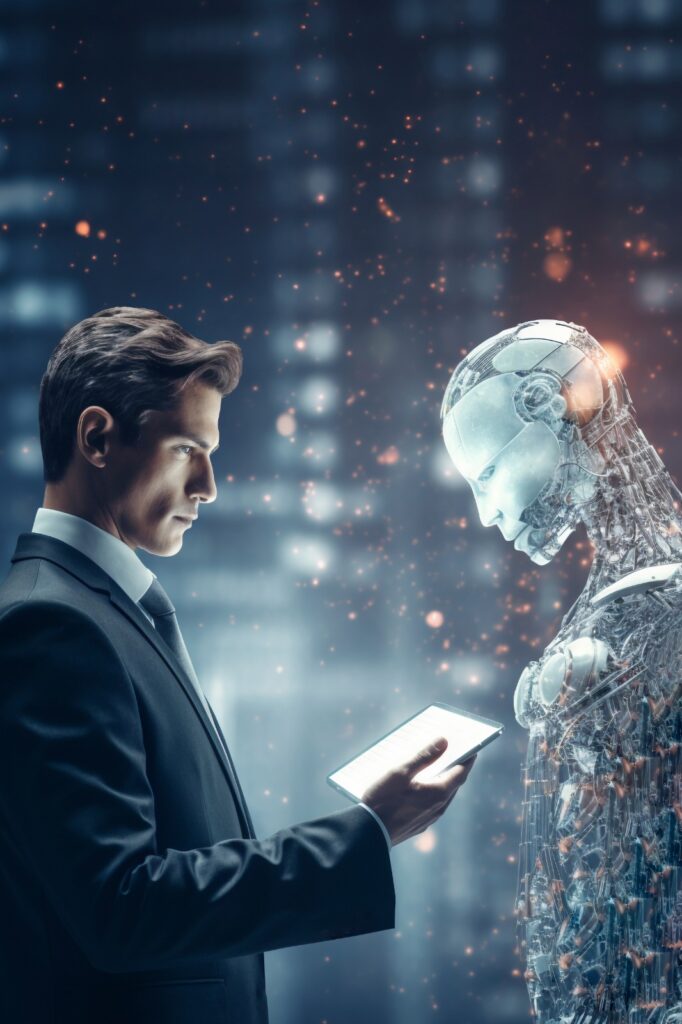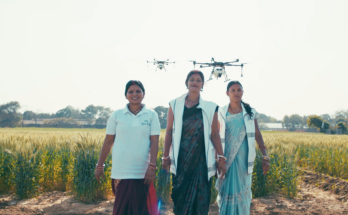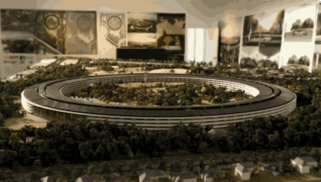by Darpan Sachdeva

In the quiet moments between our daily routines, have you ever paused to wonder what the world might look like in 10, 20, or even 30 years from now? I often find myself in this contemplative state, imagining a future where the boundaries between human capability and technological assistance have blurred in ways we’re only beginning to comprehend. This isn’t idle daydreaming—it’s preparing mentally for what may be the most profound transformation in human history.
Today, I want to take you on a journey into a future being shaped by artificial intelligence and robotics—not as distant sci-fi concepts, but as the emerging reality that’s already weaving itself into the fabric of our lives.
The Dawn of a New Era
We stand at the precipice of something extraordinary. The convergence of artificial intelligence and robotics isn’t just another technological revolution—it represents an evolutionary leap for humanity. For the first time in our existence, we’re creating systems that can learn, adapt, and potentially even understand the world in ways that mirror and may someday surpass our own cognitive abilities.
When I first began researching this space years ago, AI was primarily confined to academic research papers and specialized industrial applications. Today, I can have a conversation with an AI that feels remarkably human, while robots perform surgeries with precision beyond human capability. The pace of advancement hasn’t just been fast—it’s been exponential.
As Peter Diamandis often points out, humans are notoriously poor at understanding exponential growth. We instinctively think linearly. This means we consistently underestimate the scale and speed of technological transformation. What seems decades away often arrives within years, catching us unprepared both practically and philosophically.
Reimagining Work in the Age of Intelligence
The relationship between humans and work is about to undergo its most significant reinvention since the industrial revolution. But unlike previous technological shifts that primarily automated physical labor, AI and robotics are now encroaching on cognitive tasks once thought to be exclusively human domains.
This doesn’t mean human work disappears—it transforms. Throughout history, technology has been a net creator of jobs and prosperity, though the transition periods can be challenging. What’s different now is the potential speed and breadth of the change.
In my readings of leading AI researchers and futurists, a consistent theme emerges: the most valuable human skills will be those that machines struggle to replicate. Creativity, emotional intelligence, ethical judgment, philosophical thinking, and the ability to connect seemingly unrelated dots into novel innovations—these quintessentially human capabilities will become increasingly precious.
We’re moving toward a world where AI handles the routine while humans focus on the remarkable. Imagine dedicating your working hours exclusively to tasks that energize and fulfill you, with AI managing the mundane aspects that currently consume so much of our time and mental energy.
The Personalization of Everything
One of the most profound yet underappreciated aspects of the AI revolution is the move toward radical personalization in nearly every aspect of life. The standardized, mass-produced approach that defined the 20th century is giving way to tailored experiences shaped by our individual needs, preferences, and even biological uniqueness.
Education is perhaps the most exciting frontier. The current educational model—largely unchanged for over a century—will evolve from standardized curriculums to personalized learning journeys. AI tutors will adapt to each student’s learning style, pace, strengths, and weaknesses, potentially addressing the educational inequality that has plagued societies worldwide.
Healthcare too stands on the brink of transformation. The combination of AI diagnostics, robotics-assisted procedures, and personalized medicine based on your specific genetic makeup promises healthcare that’s not just reactive but predictive and preventative. Diseases may be identified and addressed before symptoms ever appear, extending not just lifespan but “healthspan“—the portion of life spent in good health.
Even our homes and cities will become responsive environments, adapting to our needs in real-time. The “smart home” of today is merely a primitive precursor to truly intelligent living spaces that anticipate needs and enhance wellbeing through subtle environmental adjustments.
The Philosophical Frontier
Beyond the practical implications, AI and robotics force us to confront profound philosophical questions.
What does it mean to be human when machines can perform many tasks better than we can?
How do we define consciousness, and could machines ever possess it?
What values should guide the development of systems that might someday exceed our intelligence?
These aren’t abstract academic questions but practical considerations that will shape policy, ethics, and personal choices in the coming decades. The answers we formulate—individually and collectively—will determine whether these technologies fulfill their potential to elevate humanity or exacerbate existing problems.
I believe we’re entering an era where technological capability and philosophical wisdom must advance hand-in-hand. Technical expertise without ethical grounding is dangerous; ethical frameworks without technical understanding are ineffective. The most valuable skill may be the ability to bridge these worlds.
Preparing for the Unimaginable
How do we prepare for a future that may look radically different from the present? This question has occupied my thinking for years, and while there are no simple answers, certain approaches seem particularly valuable.
First, cultivate adaptability as your core strength. The specific technologies and applications will evolve in unpredictable ways, but the need to continuously learn, unlearn, and relearn will remain constant. The most resilient people will be those who view change not as a threat but as an opportunity for growth.
Second, deepen your understanding of what makes us uniquely human. As machines become more capable, our distinctive human qualities become more valuable. Emotional depth, ethical reasoning, and creative expression aren’t just enriching—they’re becoming economic assets in a world where routine tasks are increasingly automated.
Third, participate in shaping these technologies. The future isn’t predetermined but created through countless decisions made by individuals, organizations, and societies. By engaging with these technologies—understanding their capabilities and limitations, advocating for responsible development, and imagining positive applications—you help steer them toward beneficial outcomes.
I’ve included below a powerful YouTube video that showcases some of the extraordinary ways AI is already enhancing human capability and addressing challenges once thought insurmountable. It’s a reminder that these technologies, developed thoughtfully, can become powerful amplifiers of human potential rather than replacements for human involvement.
The Greatest Opportunity in Human History
When I reflect on the convergence of AI and robotics, I don’t see a dystopian future of human obsolescence. Instead, I see potentially the greatest opportunity in human history to transcend limitations that have constrained human flourishing for millennia.
Imagine a world
-Where no human needs to perform dangerous, demeaning, or purely repetitive work.
-Where education is personalized and accessible to everyone regardless of geography or economic circumstance.
-Where healthcare prevents suffering rather than merely responding to it.
-Where creativity is amplified through collaboration with intelligent systems that extend our cognitive reach.
This future isn’t guaranteed—it’s a possibility we must consciously create through thoughtful innovation, wise governance, and a commitment to ensuring these technologies serve humanity’s highest aspirations rather than our basest impulses.
The coming decades will be defined not just by what these technologies can do, but by how we choose to use them. In that choice lies our greatest power and responsibility.
As we stand at this extraordinary moment in human history, I invite you to approach the future not with fear but with informed optimism and a commitment to participating in creating a world where technology serves as a powerful ally in advancing human flourishing.
The future belongs to those who prepare for it.
How are you preparing?
 Darpan Sachdeva is the CEO and Founder of Nobelthoughts.com. Driven by a profound dedication to Entrepreneurship, Self-development, and Success over an extended period, Darpan initiated his website with the aim of enlightening and motivating individuals globally who share similar aspirations. His mission is to encourage like-minded individuals to consistently pursue success, irrespective of their circumstances, perpetually moving forward, maintaining resilience, and extracting valuable lessons from every challenge.
Darpan Sachdeva is the CEO and Founder of Nobelthoughts.com. Driven by a profound dedication to Entrepreneurship, Self-development, and Success over an extended period, Darpan initiated his website with the aim of enlightening and motivating individuals globally who share similar aspirations. His mission is to encourage like-minded individuals to consistently pursue success, irrespective of their circumstances, perpetually moving forward, maintaining resilience, and extracting valuable lessons from every challenge.


